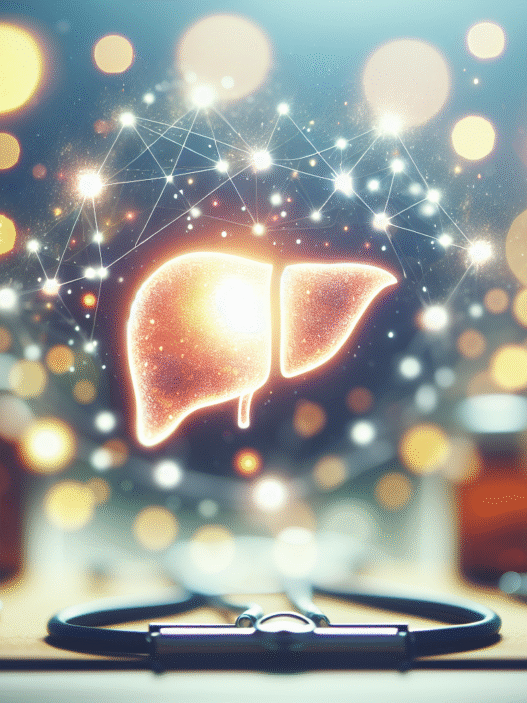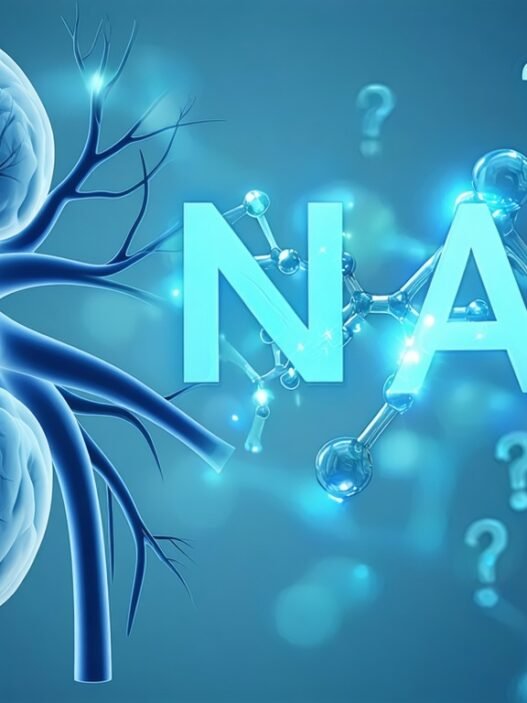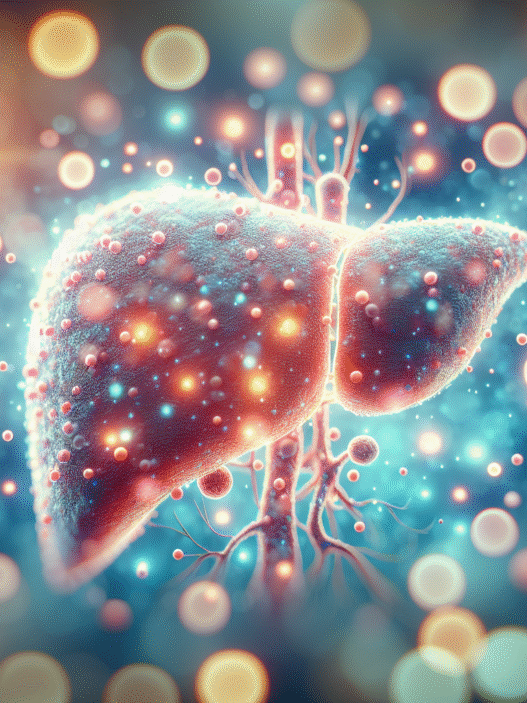Understanding N-Acetyl Cysteine (NAC)
Introduction to NAC
N-Acetyl Cysteine (NAC) is a powerful antioxidant and a derivative of the amino acid cysteine. It plays a vital role in replenishing intracellular levels of glutathione, a critical antioxidant that protects cells from oxidative stress and damage. NAC is widely recognized for its therapeutic properties and is commonly used as a supplement for various health benefits, particularly in supporting liver function and detoxification processes. For those curious about its uses, further details can be found in our article on what is NAC N-Acetyl Cysteine used for?.
Benefits of NAC
The benefits of NAC extend beyond liver health. Research has shown that NAC offers a range of advantages, including:
| Benefit | Description |
|---|---|
| Antioxidant Support | NAC enhances antioxidant levels, helping to combat oxidative stress. |
| Liver Health | It aids in detoxifying the liver and restoring liver function, making it a popular choice among those concerned about liver health (is NAC good for your liver?). |
| Respiratory Support | NAC is known to help thin mucus and improve lung function, making it beneficial for conditions such as chronic bronchitis and COPD. |
| Mental Health | Preliminary studies suggest that NAC may help alleviate symptoms of anxiety and depression. |
| Inflammation Reduction | NAC has shown potential in reducing inflammation in various conditions (does NAC help inflammation?). |
| Nutritional Support | It may help improve insulin sensitivity and support weight management. |
The multifunctional role of NAC makes it a strong contender in conversations about effective liver supplements and overall health. However, individuals should consult healthcare providers before starting any new supplement regimen to determine the appropriate usage and to understand any potential side effects. Insights on this topic can be found in our coverage of the negative side effects of NAC and guidelines for daily use are detailed in is it ok to take NAC every day?.
NAC and Liver Health
N-Acetyl Cysteine (NAC) is gaining attention in health circles, particularly for its role in promoting liver health. This section explores how NAC contributes to liver detoxification and its overall effects on liver function.
NAC for Liver Detoxification
NAC has been recognized for its ability to aid in liver detoxification. As a precursor to glutathione, one of the body’s most vital antioxidants, NAC helps boost levels of this important molecule in the liver. Glutathione plays a crucial role in neutralizing free radicals and detoxifying harmful substances, making it essential for maintaining liver health.
When the liver is exposed to toxins, such as alcohol and certain medications, NAC can help mitigate damage. It acts by replenishing glutathione levels, which can become depleted in the face of high toxin loads. Studies suggest that NAC supplementation may support the liver’s detoxification processes, particularly in cases of acute liver injury or overexposure to toxic substances [Medical News Today].
Effects on Liver Function
NAC not only assists with detoxification but also shows promise in improving overall liver function. Research indicates that NAC may help reduce liver inflammation and support recovery in individuals with fatty liver disease. A common concern is the potential for liver injuries from dietary supplements; however, NAC is considered to be relatively safe and effective when used appropriately.
To maximize benefits, it is important to consult healthcare providers regarding appropriate dosages for liver repair and detoxification. For those interested in further exploring the effectiveness of NAC specifically for liver health, additional resources are available on is NAC good for your liver? and how much NAC for liver repair?.
While NAC is beneficial, it is essential to remember that maintaining a healthy liver goes beyond supplementation. Factors such as diet, alcohol consumption, and overall lifestyle choices play a significant role in liver health. For more comprehensive approaches to liver care, consider exploring dietary factors and the effects of alcohol consumption further in the article.
Considerations for NAC Use
When considering N-Acetyl Cysteine (NAC) as a supplement, understanding dosage guidelines and potential side effects is important for optimal use.
Dosage Guidelines
NAC dosage can vary depending on the specific health goals and individual health conditions. Below is a general guideline for NAC supplementation:
| Purpose | Recommended Dosage (mg/day) |
|---|---|
| General Antioxidant Support | 600 – 1,200 |
| Liver Detoxification | 1,200 – 2,400 |
| Respiratory Health | 600 – 1,800 |
It is essential to consult a healthcare provider before starting NAC to determine the best dosage for individual needs. Special consideration should be given to those with pre-existing conditions, as herbal dietary supplements can sometimes contribute to liver injuries. According to Medical News Today, herbal supplements account for about 20% of liver injuries in the U.S.
Potential Side Effects
While NAC is generally well tolerated, it can lead to some side effects that individuals should be aware of. The following table outlines common potential side effects associated with NAC:
| Side Effect | Description |
|---|---|
| Gastrointestinal Issues | Nausea, vomiting, diarrhea, and abdominal discomfort are common reactions. |
| Allergic Reactions | Some individuals may experience skin rashes or shortness of breath. |
| Fatigue | NAC can cause a feeling of tiredness in some users. |
Individuals should report any unusual symptoms to their healthcare provider. It is also important to note that there is insufficient scientific evidence to fully support the use of supplements, including NAC, for treating or preventing liver disease (Medical News Today). Therefore, lifestyle choices alongside potential supplementation are critical for maintaining liver health.
Consultation with a healthcare professional is advised, especially for those considering combining NAC with other substances or medications. To learn more, check our article on what is nac n-acetyl cysteine used for?.
NAC vs. Other Liver Supplements
When exploring liver supplements, it’s important to compare N-Acetyl Cysteine (NAC) with alternatives such as silymarin (milk thistle) and zinc. Each of these supplements offers unique benefits for liver health.
Comparing NAC with Silymarin
NAC and silymarin are both popular supplements for liver support, but they function differently in promoting liver health. NAC is primarily known for its detoxification properties, replenishing glutathione levels in the liver and helping to detoxify harmful substances. In contrast, silymarin, derived from milk thistle, is believed to protect liver cells from damage and may aid in the regeneration of liver tissue.
| Supplement | Main Action | Additional Benefits |
|---|---|---|
| NAC | Detoxification | Supports glutathione levels, helps with liver repair |
| Silymarin | Liver protection | Antioxidant properties, may aid liver cell regeneration |
Research indicates that while both supplements can support liver health, they may work best in conjunction rather than as exclusive options. Additional studies are needed to fully understand their synergistic effects.
For further information about NAC, visit what is nac n-acetyl cysteine used for?.
Zinc for Liver Protection
Zinc also plays a critical role in liver health, particularly for individuals with liver conditions such as cirrhosis. Zinc deficiency has been noted in patients with cirrhosis, impacting enzymes like alcohol dehydrogenase (ADH), which rely on zinc for optimal function (PMC). Supplementation of zinc has shown potential to enhance ADH activity and reduce oxidative stress in the liver.
| Benefit | Mechanism |
|---|---|
| Enhances ADH activity | Zinc supports the enzyme’s catalytic function |
| Reduces oxidative stress | Zinc may offer protective effects against liver injury |
While zinc may provide benefits for liver protection, further research is required to establish its efficacy in treating liver diseases. It’s essential to consider combining zinc supplementation with NAC or silymarin for a more holistic approach to liver health.
For more on how different supplements may impact liver function, visit is nac good for your liver? or learn about the benefits of milk thistle.
Lifestyle Choices for Liver Health
A healthy lifestyle plays a vital role in maintaining liver function and overall wellbeing. Key lifestyle factors impacting liver health include dietary choices and alcohol consumption.
Dietary Factors
Diet significantly influences liver health. Foods high in saturated fats, sugars, and refined carbohydrates can increase the risk of nonalcoholic fatty liver disease (NAFLD), which is becoming increasingly common due to the obesity epidemic in the United States. A balanced diet rich in fruits, vegetables, whole grains, and lean proteins is essential for supporting liver function and detoxification processes.
Here are some dietary factors to consider:
| Food Type | Impact on Liver Health |
|---|---|
| Fruits & Vegetables | High in antioxidants, protect liver cells |
| Whole Grains | Provide fiber; support healthy digestion |
| Lean Proteins | Aid in liver repair and regeneration |
| Healthy Fats | Sources like olive oil help reduce liver fat |
In addition to food choices, hydration is equally important. Drinking enough water helps flush toxins from the body and promotes healthy liver function.
Alcohol Consumption
Alcohol consumption can have a profound impact on liver health. Large quantities of beer, wine, or liquor can damage liver cells and lead to serious conditions such as cirrhosis. It is generally recommended to consume alcohol in moderation, defined as no more than one to two glasses per day (Healthline). People concerned about liver health should be particularly cautious with alcohol intake and consider discussing their habits with a healthcare professional.
The effects of alcohol on the liver can vary based on individual factors, including genetics and pre-existing health conditions. Limiting or eliminating alcohol intake can significantly reduce the risk of liver-related diseases.
Fostering healthy lifestyle choices, combined with appropriate supplementation such as N-Acetyl Cysteine (NAC), can contribute to optimal liver health. If looking for guidance on effective liver supplements, consider exploring what is available from various brands and discussing with a healthcare provider. For detailed information on NAC, visit our article on what is NAC N-acetyl cysteine used for?.
Ensuring Supplement Safety
When considering the use of supplements, especially for liver health, it is imperative to ensure their safety and efficacy. This section explores the importance of third-party testing and provides guidelines for choosing the right supplements.
Third-Party Testing
Third-party testing is essential in verifying the safety, purity, and effectiveness of dietary supplements. Reputable organizations such as ConsumerLab, US Pharmacopeia, and NSF International conduct unbiased evaluations to help consumers make informed choices. Products that are certified by these organizations indicate a level of quality control, ensuring that they contain the ingredients listed on the label without harmful contaminants (Stanford University – Lifestyle).
| Organization | Focus | Certification Benefits |
|---|---|---|
| ConsumerLab | Purity and potency | Verified ingredient accuracy |
| US Pharmacopeia | Safety and effectiveness | Quality standards compliance |
| NSF International | Contaminants and label accuracy | Assurance of product claims |
It’s advisable to choose supplements that bear certifications from these testing bodies, as they provide added confidence regarding product quality.
Guidelines for Choosing Supplements
Selecting the right supplement involves several key considerations. He or she should approach this decision with skepticism and informed judgment. The following guidelines can help in making safe choices:
-
Consult Health Professionals: Before starting any new supplement regimen, consult with a healthcare provider, especially if taking medications or managing a health condition.
-
Check for Third-Party Testing: Look for products that have undergone third-party testing and bear relevant certifications.
-
Understand Ingredient Interactions: Be aware that the efficacy of supplements can be influenced by their chemical forms and interactions with other nutrients. For instance, fat-soluble vitamins are optimally absorbed when paired with fats, while minerals such as copper and zinc can compete for absorption (Stanford University – Lifestyle).
-
Research Ingredients: Investigate any claims made about the supplement and ensure they are backed by credible evidence. Not all supplements have persuasive scientific support for their efficacy.
-
Be Wary of ‘Natural’ Claims: The term ‘natural’ does not always equate to safety. Many herbal supplements can cause significant risks, especially concerning liver health (Medical News Today).
-
Read Reviews and Reports: Look for consumer reviews and independent reports on the supplement. User experiences can provide insights into efficacy and potential side effects.
By adhering to these guidelines and considering third-party verification, individuals concerned about liver health can make informed decisions regarding their supplement choices. For more information on the effects of NAC on liver health, see is NAC good for your liver?.





















